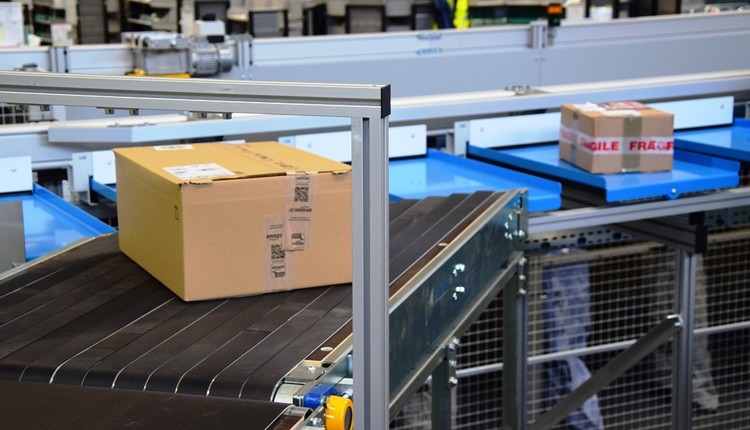UPS (NYSE: UPS) today announced its fleet of alternative fuel and technology delivery vehicles has driven 200 million miles since 2000. The alternative fuel fleet (AFV) now numbers more than 1,900 and another 62 vehicles have just been ordered.
The total mileage accumulated by UPS's "green fleet" is the equivalent of nearly three round trips to Mars or circling the Earth more than 8,600 times. UPS estimates that its fleet of alternative fuel and technology delivery vehicles will drive the next 200 million miles by 2017.
"UPS operates AFVs in the United States, Canada, France, Germany, Brazil, the UK and Hong Kong," noted Mike Britt, UPS's director of vehicle engineering. "The 200 million mile benchmark proves a number of AFV technologies are viable over the long term in a variety of working environments and so we'll continue to expand the AFV fleet."
So far this year, UPS has announced the purchase of 48 new Liquefied Natural Gas (LNG) tractors for the United States to operate in northern California, including the construction of a publically accessible LNG fueling station. In addition, UPS has purchased 14 cutting-edge Modec electric vehicles for its operations in London.
To date, UPS has explored eight different alternative fuel technologies, starting with Compressed Natural Gas (CNG) and propane technologies in the late 1980s. Hybrid-electric vehicles (HEVs) were introduced to the fleet in 1998. UPS invested in all-electric vehicles in 2004 and then deployed the first Liquefied Natural Gas (LNG) tractors to its fleet. UPS uses Liquefied Petroleum Gas trucks in Korea and has experimented with hydraulic-hybrid and hydrogen fuel cell technologies.
According to Britt, the purchasing viability of AFV technology is based on economics, fuel infrastructure availability, reliability, product supply, carbon impact, fuel savings and operational considerations.
"At UPS, we expand our alternative fuel fleet using a 'rolling laboratory' approach," he explained. "Our alternative fuel fleet teaches us how new technologies and advancements can be adapted for use in a large delivery fleet. UPS puts new technologies in settings where they are most effective and most efficient."
UPS first deployed alternative fuel delivery vehicles briefly in the 1930s when electric trucks were used in New York City. Today, UPS has the widest variety of alternative fuel technologies of any private delivery company and is the only private delivery company using LNG technology in its fleet. UPS operates one of the largest private fleets of alternative fuel and technology vehicles in its industry - 1,914 in total.
While operating its current alternative fuel and technology vehicles, UPS is also working with manufacturers, government agencies and non-profit organizations to advance new fuel technologies and find cheaper, cleaner-burning fuels that are better for the environment and more sustainable than conventional diesel.
The total mileage accumulated by UPS's "green fleet" is the equivalent of nearly three round trips to Mars or circling the Earth more than 8,600 times. UPS estimates that its fleet of alternative fuel and technology delivery vehicles will drive the next 200 million miles by 2017.
"UPS operates AFVs in the United States, Canada, France, Germany, Brazil, the UK and Hong Kong," noted Mike Britt, UPS's director of vehicle engineering. "The 200 million mile benchmark proves a number of AFV technologies are viable over the long term in a variety of working environments and so we'll continue to expand the AFV fleet."
So far this year, UPS has announced the purchase of 48 new Liquefied Natural Gas (LNG) tractors for the United States to operate in northern California, including the construction of a publically accessible LNG fueling station. In addition, UPS has purchased 14 cutting-edge Modec electric vehicles for its operations in London.
To date, UPS has explored eight different alternative fuel technologies, starting with Compressed Natural Gas (CNG) and propane technologies in the late 1980s. Hybrid-electric vehicles (HEVs) were introduced to the fleet in 1998. UPS invested in all-electric vehicles in 2004 and then deployed the first Liquefied Natural Gas (LNG) tractors to its fleet. UPS uses Liquefied Petroleum Gas trucks in Korea and has experimented with hydraulic-hybrid and hydrogen fuel cell technologies.
According to Britt, the purchasing viability of AFV technology is based on economics, fuel infrastructure availability, reliability, product supply, carbon impact, fuel savings and operational considerations.
"At UPS, we expand our alternative fuel fleet using a 'rolling laboratory' approach," he explained. "Our alternative fuel fleet teaches us how new technologies and advancements can be adapted for use in a large delivery fleet. UPS puts new technologies in settings where they are most effective and most efficient."
UPS first deployed alternative fuel delivery vehicles briefly in the 1930s when electric trucks were used in New York City. Today, UPS has the widest variety of alternative fuel technologies of any private delivery company and is the only private delivery company using LNG technology in its fleet. UPS operates one of the largest private fleets of alternative fuel and technology vehicles in its industry - 1,914 in total.
While operating its current alternative fuel and technology vehicles, UPS is also working with manufacturers, government agencies and non-profit organizations to advance new fuel technologies and find cheaper, cleaner-burning fuels that are better for the environment and more sustainable than conventional diesel.



